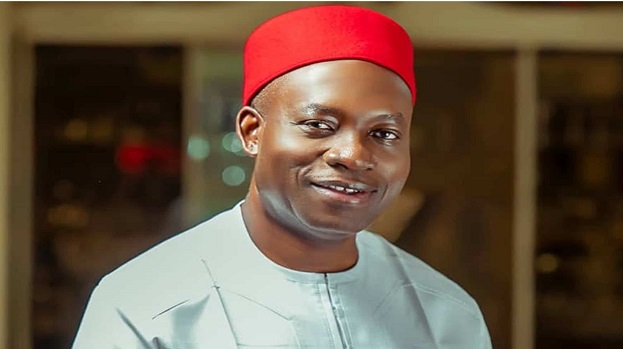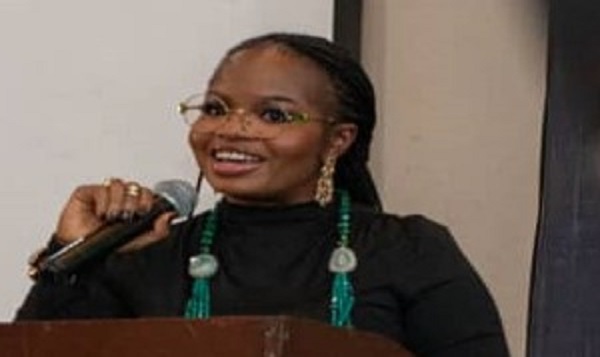News
NOTAP Holds Retreat for Management Staff

The National Office for Technology Acquisition and Promotion (NOTAP) has held its 2016 Management Retreat.
The three-day retreat which took place at the Maizube farms Minna, Niger State recently, attracted the pioneer Chief Executive, two former Directors General, the present Director General, Directors and other top Management Staff of the Office.
Declaring the retreat open, Dr. DanAzumi Mohammed Ibrahim, director general of NOTAP said the retreat is necessary in view of the current economic realities occasioned by the dwindling oil prices which have affected the nation’s earnings being the mainstay of the national economy.
He pointed out that considering the strategic position of NOTAP by virtue of its interactions with the industry, academia and other stakeholders in the pursuit of its mandates, the agency is expected to play a more proactive role in the national economy in the face of dwindling oil revenue and the need for diversification by aligning its programmes and activities with the broad policy thrusts and priority programmes of the current administration.
The director general said the management retreat is a platform for the current and past chief executives of NOTAP and the entire management Staff to critically review the programmes and activities of the Office and mandates to identify existing gaps, proffer necessary solutions and develop clear cut strategies to reposition the office as a key driver in the national economy.
He urged the retreat participants to make meaningful contributions and collectively move the agency forward.
The three day retreat featured paper presentations by the pioneer Chief Executive of NOTAP Chief Friday James Okono, former Directors General Dr. David Akosa Okongwu and Engr. Umar Buba Bindir PhD respectively and the current Director General and Chief Executive Dr. DanAzumi Mohammed Ibrahim all centred on the way forward for the Office.
The six (6) directorates of the Office also made presentations through their Directors; Dr. Ephraim Okejiri Technology Transfer Registration (TTR) department, Engr. Lucky Nwosa Technology Acquisition and Research Coordination (TARC) department, Mr. Samuel Eneanya Technology Innovation & Commercialisation (TIC) department, Mr. Adamu Tandama Consultancy Services (CS) department, Mrs. Caroline Taiwo-Ojo Corporate Planning (CP) department and Mr. Jibril Useni Human Resources & Finance Management (HR&FM) department.
The Special Assistant to the Director General Mr. Isaac Nwadozie made a presentation on behalf of the five (5) units under the Director General’s Office namely; Public Relations & Protocol, Audit, Legal, Procurement and Transparency & Anti-Corruption Units.
Several discussion sessions were held aimed at charting a new course of action in actualising the mandates of the Office.
News
LIRS to Invoke NTAA to Recover Unpaid Taxes from Bank Accounts, Others

Lagos Internal Revenue Service (LIRS) pursuant to Section 60 of the Nigeria Tax Administration Act (NTAA), plans to ask Nigerian banks to debit bank accounts of employers who failed to remit tax liability.

This was disclosed in a recent notice on Sunday.
LIRS stressed that the move was in line with the implementation of the country’s NTAA and other new tax laws, which took effect on January 1, 2026.
“Where a taxpayer fails, neglects, or refuses to settle any established outstanding tax liability when due, LIRS may exercise its power under Section 60 to direct any of the following persons to pay the amount owed by the taxpayer:
“Banks and other financial institutions; Employers; tenants, debtors, or customers of the taxpayer; Agents, business partners, and any person holding money on behalf of the taxpayer; Any person owing money to the taxpayer, whether presently due or accruing. Once a substitution notice is issued, the person served is statutorily required to remit to LIRS the amount. Specified in the notice from funds belonging to, or payable to, the defaulting taxpayer,” the LIRS notice partly read.
Meanwhile, Taiwo Oyedele, chairman of the Presidential Committee on Fiscal Policy and Tax Reforms, weeks ago ruled out claims that the government would debit personal accounts over tax remittances.
News
Anambra Cuts Monday Pay to Kill Sit-at-Home

Anambra State will implement pro-rata salary payments for civil servants starting February 2026, targeting chronic Monday absenteeism from the long-running sit-at-home order, Information Commissioner Dr. Law Mefor announced Saturday.

Soludo
Speaking at an Awka briefing after the Executive Council’s end-of-tenure retreat, Mefor said improved security and transport have eliminated excuses for the four-year disruption, which cost the state trillions in lost revenue. “Workers enjoyed full pay despite staying away; now, no work means no pay for that day, calculated over 24 working days,” he stated.
Compliance measures include mandatory Monday clock-in forms, with markets urged to reopen fully amid bolstered security. This builds on a January 22 executive order docking 20% pay from teachers absent on Mondays.
Mefor warned that lost Mondays cripple revenue collection and productivity, rejecting alternatives like Saturday shifts as capitulation to agitators.
News
Stakeholders Demand Stronger Governance and Infrastructure to Drive Tech Adoption @ Lagos AI Summit

As AI adoption accelerates across Nigeria, leaders at the “AI in Action Now” conference 2026 have called for a balance between rapid innovation and strict regulatory governance. The event, held at the Lagos Oriental Hotel, highlighted both the doggedness of Nigerian builders and the risks of unregulated data usage.

Dotun Adeoye, Co-Founder of AI Nigeria, raised alarms over “Shadow AI”, a trend where employees upload sensitive official documents to public AI platforms. He praised the Nigerian Data Protection Commission (NDPC) for its recent aggressive stance, including multi-million-dollar fines against major banks and social media brands.
“Innovation without governance is dangerous. The regulator now has the job of educating players. We are working in partnership with them to ensure players don’t just get fined, but actually understand how to protect data locally rather than storing it abroad, ” Adeoye noted.
Addressing issues of lack of infrastructure to carry AI adoption, Conference Convener Debola Ibiyode admitted that while Nigeria lacks the traditional foundation for AI adoption, the tech community cannot afford to wait.

“The simple answer is we don’t have the infrastructure, but Nigeria has never really had infrastructure to drive anything, and we still thrive, ” Iboyode said, encouraging students and builders to look beyond current limitations. “Once we start to build based on what we have now, it will encourage those who need to provide the infrastructure to do their part. The world will not wait for us,” she insisted.
To bridge this gap, she highlighted the AI Foundry Africa, an incubator designed to mentor ideas into market-ready products.
Meanwhile, speaking to journalists on the sidelines, Biodun Ogunleye, the Lagos State Commissioner of Energy and Mineral Resources, echoed the sentiment that the government’s role is to facilitate the right environment through partnership. He emphasized that data generated from interactions with the government must have long-term value.
“We must ensure that in all facets from production to interaction with government, the tools required to ensure data has value are appreciated,” Ogunleye stated.
He concluded that through private-sector collaboration, the government can focus on its primary functions while leveraging AI to ensure the nation aspires for the future.

 General News3 days ago
General News3 days agoPalmPay User Shares Experience on Fintech Apps to Trust in Nigeria

 News3 days ago
News3 days agoStakeholders Demand Stronger Governance and Infrastructure to Drive Tech Adoption @ Lagos AI Summit

 General News3 days ago
General News3 days agoNigerians Target Self-Improvement, Business Startups in 2026 Google Data

 News3 days ago
News3 days ago35 Million Nigerians Face Acute Hunger in 2026, UN Warns

 General News3 days ago
General News3 days agoHow Inside Jobs and Policy Shocks Trigger Nigeria’s Rising Loan Crisis

 News23 hours ago
News23 hours agoAnambra Cuts Monday Pay to Kill Sit-at-Home

 E-Financial23 hours ago
E-Financial23 hours agoFirst Asset Management Receives Upgraded Ratings from Agusto &Co and DataPro

 General News23 hours ago
General News23 hours agoNigeria Treats Religious Violence as Attack on State – NSA Ribadu













